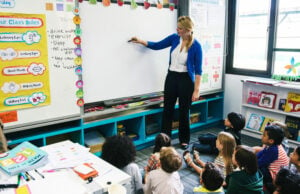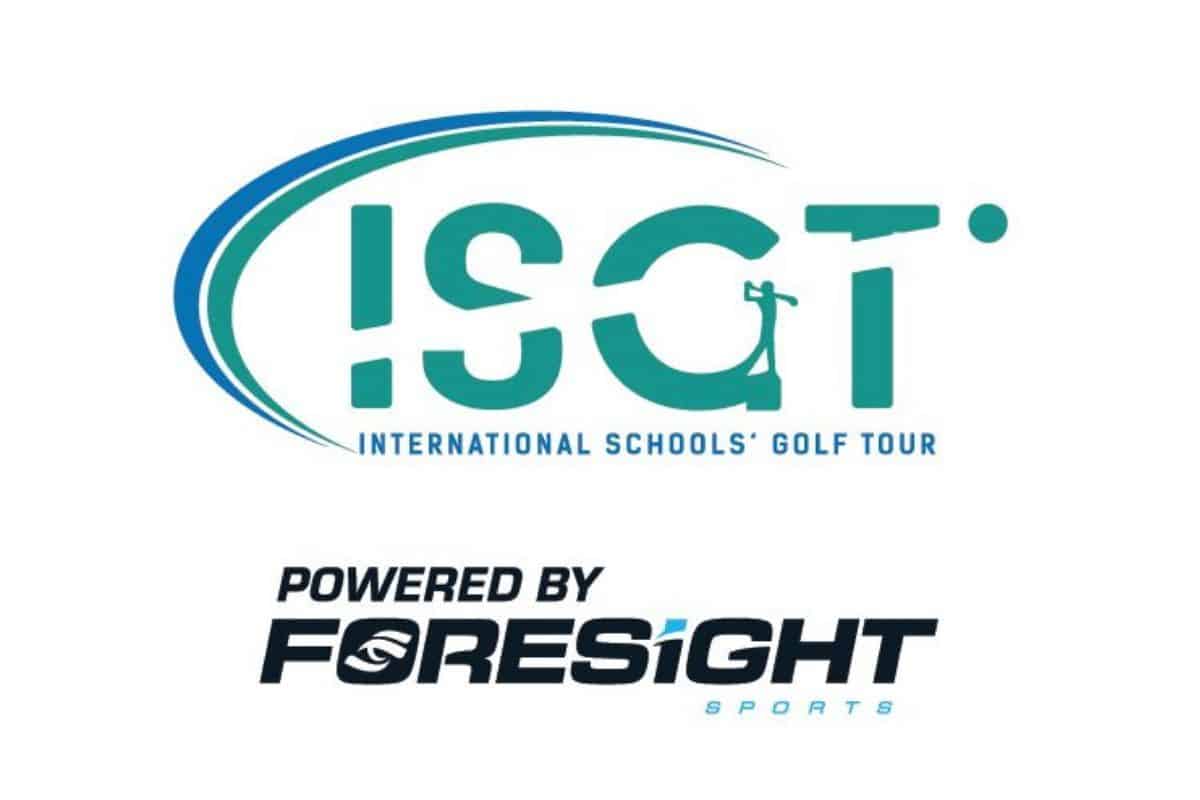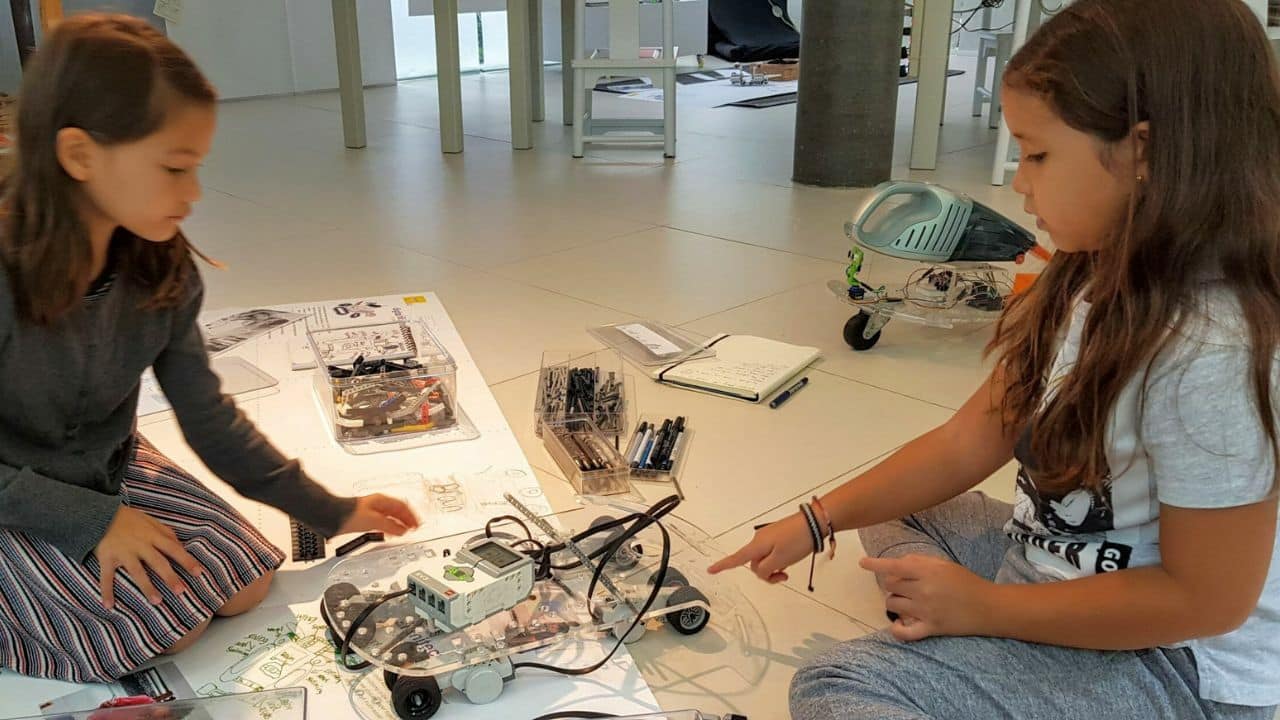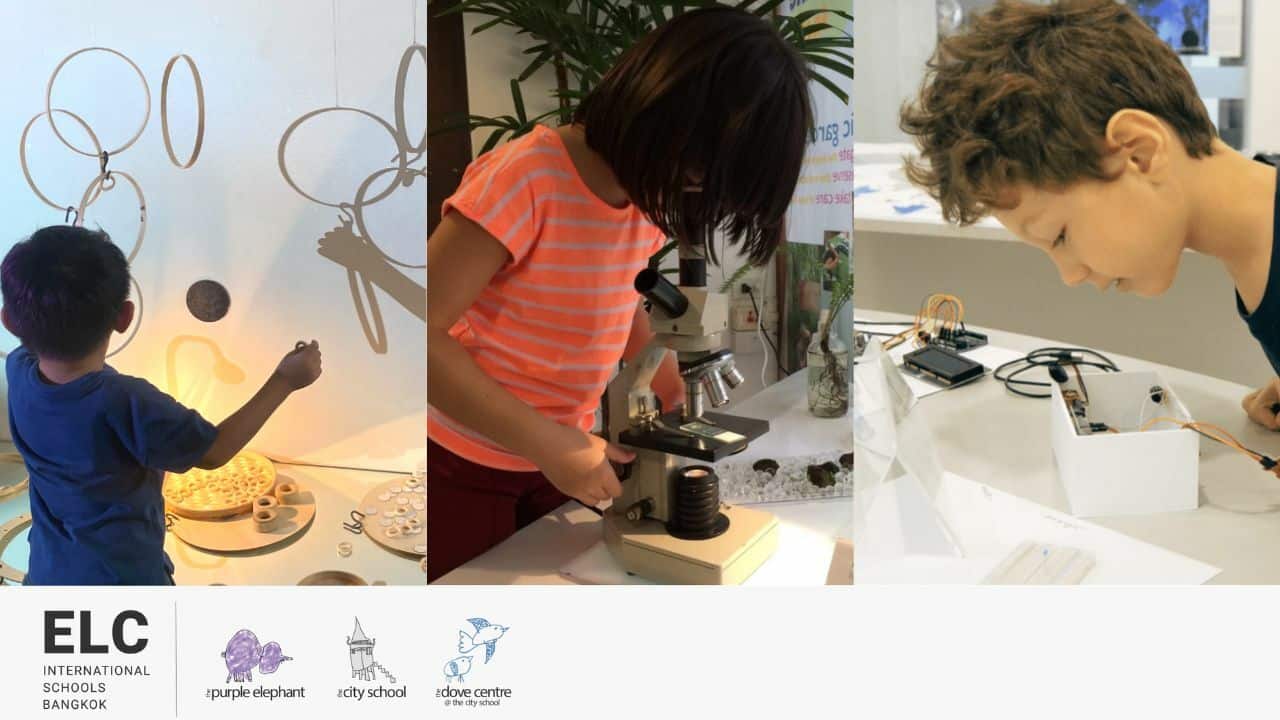Education
Looking for the Best Film School in Thailand? Bangkok University launches new international filmmaking programme
Bangkok University is promoting its Film, Series, and Global Content Production and Business programme as a practical route for aspiring filmmakers as Thailand’s film and streaming industries expand. The programme is positioned as an industry-aligned option designed to reflect contemporary production realities and the demands...
FEATURED SCHOOLS
Embracing the Future: Ecoliteracy at St. Andrew's Green Valley
Featured Schools
Education News
Teaching in Thailand
-

Choosing a school in Thailand: 10 questions every expat parent should ask on a campus tour
Choosing a school for your child is one of the most important decisions you’ll make as an expat parent in Thailand. The right school can make a world of difference, not just academically, but emotionally and socially too. It’s where your child will spend most of their days, form their first friendships, and adjust to …
-

Amnuay Silpa School celebrates its 100th anniversary with sea turtle conservation and mangrove reforestation in Sattahip
In celebration of its 100th anniversary, Amnuay Silpa School (ANS), in collaboration with the Amnuay Silpa Alumni Association, organised the Sea Turtle Conservation and Mangrove Reforestation activity on Saturday, November 8, in Sattahip District, Chonburi Province. The initiative reflected the school’s long-standing commitment to environmental stewardship and community engagement. The event brought together parents, students, …
-

How to move to Thailand with kids (without losing your mind)
The Thaiger key takeaways Families relocating for work or education have different visa paths, including Dependent and Guardian Visas, each requiring financial proof and specific documentation. Birth, marriage, and school records must be legalised through your home country’s authorities and verified by the Thai Embassy before they can be used for immigration or enrolment. Up-to-date …
-

Best university degrees taught in English for you to study in Thailand
The Thaiger key Takeaways Thailand offers a growing range of English-taught degrees across business, engineering, hospitality, medicine, and social sciences. Leading institutions include Chulalongkorn University, Thammasat University, Mahidol University, AIT, and Dusit Thani College. Tuition for English programmes generally ranges from 90,000 to 400,000 Thai baht per year, with additional costs for housing and living …
-

Bangkok private school to close after 50 years of service
A long-standing private school in Bangkok will close after decades of operation, citing low enrollment caused by Thailand’s declining birth rate and economy. Udomsuksa School, located in the Wang Thong Lang district, announced it will officially close at the end of the 2025 academic year, citing a sharp decline in student enrolment as the key …
-

A step by step guide to getting the Thai Student Visa (Non-Immigrant ED)
The Thaiger key takeaways The Non-Immigrant ED visa allows foreign students to study legally in Thailand, covering universities, language schools, and training courses. Applicants must enrol in an accredited institution, apply online via the Thai E-Visa system, and complete 90-day reporting after arrival. The ED Plus visa offers university students an added benefit, which is …
-

Culture shock: What will surprise foreign students most about studying in Thailand?
The Thaiger key takeaways Thai classrooms emphasise respect and hierarchy, where teachers hold deep authority and humility earns trust. Uniforms, morning assemblies, and Buddhist traditions give students a structured yet culturally rich school experience. While academic pressure and language barriers can challenge foreign students, the immersion fosters adaptability and cross-cultural growth. For many foreign families …
-

Is a Thai public school an option for foreign kids? Pros and cons
The Thaiger key takeaways Foreign children can enrol in Thai public schools, but admission and costs vary depending on the school. Public schools offer affordability and cultural immersion but come with language barriers and limited foreign student support. English Programs (EP) within public schools provide a middle ground between local and international education. For many …
-

Ministry confirms schools can celebrate during mourning
Thailand’s Education Ministry has clarified its stance on school celebrations, confirming that festivities are not banned, despite earlier confusion caused by conflicting guidelines. An urgent notice, issued to private schools yesterday, October 28, cancels the ministry’s previous directive and outlines revised measures. The new guidelines, effective from October 25, came following an executive meeting held …
-

Education Ministry denies school event ban during mourning
Thailand’s Education Ministry has denied issuing a blanket ban on school activities during the national mourning period for Her Majesty Queen Sirikit, The Queen Mother, following backlash from parents and educators online. Concerns were sparked after the ministry circulated a directive urging educational institutions to avoid “joyful activities” for one year out of respect. However, …
-

Raids expose illegal migrant schools in Samut Sakhon
Police, education, and administrative officials raided two illegal schools in Samut Sakhon where hundreds of migrant children were being taught by unqualified staff without permission. Over 900 migrant students and dozens of unauthorised teachers were discovered during a major raid on two illegal schools in Samut Sakhon province on Thursday, October 9. The operation targeted …
-

The International School Golf Tour powered by Foresight Sports returns to Thailand for 2025–26 season
The International School Golf Tour (ISGT), powered by Foresight Sports, is back for the 2025–26 season, bringing together over 500 student golfers from 35 international schools across Thailand. With eight ISGT tour events and one international championship, this season is shaping up to be the most exciting yet. The ISGT has become the ultimate stage …
-

St. Andrews Green Valley receives the Wellbeing Award for Schools
St. Andrews International School, Green Valley is proud to once again have been officially recognised with the Wellbeing Award for Schools (WAS) in their recent re-accreditation. The award, developed by Optimus Education in partnership with the National Children’s Bureau, acknowledges the school’s ongoing work to prioritise mental health and wellbeing across its community. The school …
-

Thai youth shaping a greener future through innovation through the project Wonder Lab: Youth for a Greener Tomorrow
Sustainability is one of those topics that can feel abstract until you see it in action. In Thailand, a group of young people recently showed that tackling environmental challenges does not always require big budgets or government programmes. Sometimes, it starts with students, a few bold ideas, and a platform that believes in their potential. …
-

Scholarships awarded to 119 disabled children in Phuket
A total of 119 children with disabilities in Phuket received scholarships to support their education and personal development, aimed at fostering inclusion and opportunity. The ceremony, held yesterday, September 8, at Phibun Sawatdi Municipality School, was organised by the Khun Phum Foundation in collaboration with the Phuket Special Education Centre. Governor Sophon Suwannarat attended the …
-

Thai education system demands reform after poor global rankings
Thailand’s education system faces renewed scrutiny following international assessments that rank Thai students in the lower half of global performance tables. Education experts caution that without comprehensive reforms, Thailand risks lagging further behind its regional peers in literacy and skills development. This urgent need for change was underscored at the Beyond Assessment: Driving Educational Change …
-

Thailand and Singapore deepen education ties after 60 years
Singapore aims to enhance its educational cooperation with Thailand as the two countries celebrate a six-decade-long partnership. At the Singapore Education Fair 2025 in Bangkok last week, Quek Shei Ting, Deputy Chief of Mission of Singapore to Thailand, emphasised education’s role as a key pillar in their bilateral relations. “Thailand and Singapore have shared a …
-

Thailand permits agricultural drones under strict regulations
The Civil Aviation Authority of Thailand (CAAT) has announced that agricultural drone operations will be permitted tomorrow, August 11 under stringent conditions, with a continued nationwide ban on other drones until August 15 or further notice. Both the drone and its operator need registration with the CAAT, along with obtaining agricultural flight authorisation. Operators must …
-

Pattaya empowers teens with ‘Happy School’ workshops
Forget boring lectures—Pattaya’s young leaders got hands-on with happiness this week in a workshop-driven celebration of National Youth Day 2025. Yesterday, August 6 at 9am, the city kicked off its official youth programme at Le Bali Resort & Spa, with Pattaya Mayor Poramet Ngampichet presiding over the opening ceremony. Themed Happy School, the event encouraged …
-

Thailand failing its youth? Grim report warns of future crisis
Thailand’s future is in danger—and the warning signs are coming straight from the classroom and job market. A damning new report has revealed that Thailand’s human capital development is hitting major roadblocks, with children and young adults falling behind in education, health, and job readiness. The findings suggest the country’s long-term economic ambitions could be …
-

Thai student numbers plummet in Korea as foreign arrivals surge
In a surprising twist to South Korea’s booming foreign arrivals, the number of Thai students and trainees has nosedived—raising eyebrows as other nationalities flock in record numbers. New figures from Statistics Korea have revealed that in 2024, only 21,000 Thai nationals entered South Korea on student and training visas, a steep 40% drop from the …
-

Thai royal award celebrates Vietnam’s top teachers
Vietnam’s star educators are basking in the royal spotlight after a Thai delegation arrived to celebrate their achievements and ramp up educational ties across Asia. From July 6 to 8, a high-profile delegation from the Princess Maha Chakri Award Foundation (PMCAF), led by Chairman Dr Krissanapong Kirtikara, visited Vietnam to meet past award winners, promote …
-

Dulwich College Bangkok opens admissions office at True Digital Park
Following its recent official announcement in Thailand, Dulwich College International School Bangkok (DCBK), a prestigious British international school, has seen strong interest from local and international families. Ahead of the campus opening in August 2026, DCBK has opened an Admissions Office on the 7th floor of True Digital Park West. Just 20 minutes away from …
-

Amnuay Silpa School among finalists for World’s Best School Prizes
Amnuay Silpa School (ANS), renowned for its outstanding bilingual programme, which incorporates internationally recognised UK curricula leading to the IGCSE and A-Levels, as well as Thailand’s O-NET, has added another prestigious academic award to its growing list of achievements. This time, Amnuay Silpa School, an independent kindergarten/foundation, primary, and secondary school in Phayathai, Bangkok, Thailand, …
-

Chulalongkorn University ranks among top 10 in ASEAN
Chulalongkorn University has solidified its position as one of Southeast Asia’s premier institutions, securing a spot in the top 10 universities in ASEAN according to the QS World University Rankings (WUR) 2026. Announced on June 19, this prestigious recognition highlights the university’s continued excellence in education, academic reputation, and employability outcomes. Not only does Chulalongkorn …
-

Phuket school flouts rules as education office struggles for action
An unregistered kindergarten in Cherng Talay continues to promote itself as a legitimate school despite lacking formal approval from the Phuket Provincial Education Area Office (PPEAO), raising concerns over education oversight on the island. Despite weeks of questioning, the PPEAO has failed to provide clear answers on the legal status of the school, leaving many …
-

Thai teachers demand MoU cancellation over alcohol discounts
Thai educators are up in arms over a controversial deal between a state agency and a beer company, launching a petition to cancel the agreement. The backlash is centred on concerns that the Memorandum of Understanding (MoU) between the Office of the Welfare Promotion Commission for Teachers and Educational Personnel (OTEP) and Tawandang German Brewery …
-

The best summer camps in Bangkok your kids will love
School’s out, the temperature is high, and the kids are full of energy… what’s a parent to do? If you’re looking to keep your kid active, curious, and creatively engaged, a summer camp in Bangkok might just be your best bet. But how do you choose the best one? We know how much you love …
-

ELC Summer School 2025 – Festival of the Arts
Get ready for a fun and exciting summer at ELC International School! With only three weeks left, now is the best time to book the last remaining spots for your child’s place in our ELC Summer School 2025. Children will enjoy hands-on activities, make new friends, and learn in a warm and supportive setting. Summer …
-

Regents International School invests in state-of-the-art sixth form centre
Regents International School Pattaya are thrilled to announce that construction has officially begun on the renovation of their former boys’ boarding house into a new sixth form centre, marking a major investment in the future of their students and an exciting milestone in their commitment to establishing an all-inclusive learning environment for all. Regents International …














































































